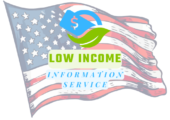Bankruptcy Help for Low Income
Bankruptcy can be a daunting and overwhelming experience, especially for individuals with low incomes. It’s crucial to understand the concept of bankruptcy and its potential benefits before diving into the process. In this blog post, we will examine the various options available for low-income individuals facing bankruptcy, explore the qualifications for low-income bankruptcy assistance, and highlight the importance of seeking professional help in navigating through their bankruptcy cases. So, if you’re seeking guidance on how to effectively deal with bankruptcy while on a limited income, keep reading to gain valuable insights and practical tips.
Understanding Bankruptcy And Its Benefits
Bankruptcy can be a daunting and complex process, but for individuals with low incomes, it can provide a fresh start and much-needed relief from overwhelming debt. Bankruptcy is a legal proceeding where individuals or businesses that are unable to repay their debts seek financial protection from their creditors. There are several types of bankruptcy, but the two most common forms for individuals are Chapter 7 and Chapter 13. It is essential to comprehend the benefits and implications of bankruptcy to make an informed decision.
One significant benefit of bankruptcy is the automatic stay, which goes into effect as soon as the bankruptcy petition is filed. This stay prevents creditors from pursuing collection actions, such as wage garnishment or property repossession. It provides immediate relief to individuals who may be facing imminent financial crises. The automatic stay can give debtors the breathing room they need to reorganize their finances and develop a plan to move forward.
Another advantage of bankruptcy for low-income individuals is the possibility of discharging or restructuring their debts. In Chapter 7 bankruptcy, eligible debts can be discharged, meaning they are entirely wiped out, providing a fresh financial start. While not all debts are dischargeable, significant ones such as credit card debt, medical bills, and personal loans can often be eliminated. On the other hand, Chapter 13 bankruptcy involves developing a repayment plan to prioritize debts and make affordable monthly payments over a three to five-year period.
The benefits of bankruptcy extend beyond just debt relief. Bankruptcy can also provide individuals with the opportunity for financial education and responsibility. Most bankruptcy courts require filers to complete credit counseling courses to help them understand their financial obligations and avoid future debt problems. These courses aim to equip individuals with the knowledge and skills to manage their finances more effectively, rebuild their credit, and make sound financial decisions in the future.
Options For Low-Income Individuals Facing Bankruptcy
Bankruptcy is a daunting prospect for anyone facing financial difficulties, but it can be especially challenging for low-income individuals. Fortunately, there are options available to help those in this situation navigate the complex world of bankruptcy and get the assistance they need. Whether you are considering filing for bankruptcy or have already started the process, understanding your options is crucial in order to make informed decisions and receive the help you deserve.
One option for low-income individuals facing bankruptcy is to seek help from legal aid organizations and pro bono attorneys. These professionals specialize in providing legal assistance to those who are unable to afford traditional legal fees. They can guide you through the bankruptcy process, help you understand your rights and responsibilities, and ensure that you are treated fairly under the law.
Another avenue to explore is credit counseling agencies that offer services specifically tailored to low-income individuals. These agencies can provide you with valuable resources and information on budgeting, debt management, and financial planning. They can also negotiate with your creditors on your behalf, potentially helping you lower your monthly payments and establish a more manageable repayment plan.
- Additionally, there are government programs available to assist low-income individuals in bankruptcy cases. One such program is the Low-Income Home Energy Assistance Program (LIHEAP), which provides financial assistance to eligible households for energy bills. This can help alleviate some financial burden and allow you to allocate more resources towards your bankruptcy proceedings.
Moreover, seeking support from community organizations and nonprofits can be beneficial during this challenging time. These groups often offer free or low-cost services such as financial education classes, legal clinics, and workshops on how to navigate the bankruptcy process. They can provide you with the necessary tools and resources to make informed decisions and ensure you are taking advantage of every available option.
Remember, facing bankruptcy can be overwhelming, but you do not have to navigate this difficult journey alone. Reach out to the resources and organizations available to low-income individuals facing bankruptcy and take advantage of the support and assistance they offer. By exploring your options and seeking help, you can make the best decisions for your financial future and work towards a fresh start.
| Benefits of Options for Low-Income Individuals Facing Bankruptcy: |
|---|
| 1. Legal aid organizations and pro bono attorneys: Provide free or discounted legal assistance. |
| 2. Credit counseling agencies: Offer guidance on budgeting, debt management, and negotiations with creditors. |
| 3. Government programs: Provide financial assistance for energy bills and other resources. |
| 4. Community organizations and nonprofits: Offer free or low-cost services, such as financial education and legal clinics. |
How To Qualify For Low-Income Bankruptcy Assistance
Are you facing financial difficulties and considering bankruptcy? If you have a low income, you may be worried about the costs associated with the bankruptcy process. Fortunately, there are options available to help low-income individuals qualify for bankruptcy assistance. By understanding these options and meeting the necessary criteria, you can get the support you need to navigate through this challenging time.
One option for low-income individuals seeking bankruptcy assistance is to work with a legal aid organization. These organizations provide free or low-cost legal services to people who cannot afford to hire a private attorney. They can help you understand the bankruptcy process, complete the necessary paperwork, and represent you in court if needed. To qualify for assistance, you will usually need to meet certain income guidelines, which vary depending on your location and family size.
Another way to qualify for low-income bankruptcy assistance is through pro bono programs offered by local law firms. Pro bono refers to legal services provided for free to individuals in need. Many law firms have pro bono programs specifically dedicated to helping low-income individuals with bankruptcy cases. To qualify for pro bono assistance, you typically need to demonstrate financial need and meet specific criteria set by the law firm.
- Seeking guidance from non-profit credit counseling agencies is also an option for low-income individuals facing bankruptcy. These agencies are approved by the U.S. Department of Justice and offer free or low-cost services to help you understand your financial situation, develop a budget, and explore alternatives to bankruptcy. They can also provide guidance on qualifying for low-income bankruptcy assistance and refer you to legal aid organizations in your area.
- Additionally, some bankruptcy courts offer fee waivers for individuals with low incomes. A fee waiver allows you to file for bankruptcy without paying the associated fees. To qualify for a fee waiver, you will need to demonstrate that your income falls below a certain threshold and that you cannot afford to pay the fees. Each court has its own criteria for determining eligibility, so it’s important to research the requirements specific to your jurisdiction.
It’s crucial to keep in mind that qualifying for low-income bankruptcy assistance is not a guarantee, and the availability of these options may vary depending on your location. To determine the specific qualifications and requirements in your area, it is recommended to consult with a legal professional or contact local bankruptcy resources.
| Pros of Low-Income Bankruptcy Assistance | Cons of Low-Income Bankruptcy Assistance |
|---|---|
|
|
Seeking Professional Help For Low-Income Bankruptcy Cases
Seeking professional help for low-income bankruptcy cases can be a crucial step towards resolving financial hardships. When individuals face overwhelming debt and are unable to meet their financial obligations, bankruptcy may provide a legal solution to manage or eliminate debt. However, navigating the complex process of bankruptcy can be challenging, especially for those with limited resources and income. In such cases, seeking professional assistance from bankruptcy lawyers or nonprofit organizations specializing in bankruptcy help for low-income individuals can make a significant difference in ensuring a smooth and successful bankruptcy filing.
One of the primary advantages of seeking professional help for low-income bankruptcy cases is the expertise and experience that bankruptcy attorneys bring to the table. These professionals are well-versed in bankruptcy laws and procedures and can guide individuals through the entire process, helping them understand their rights and options. Bankruptcy lawyers can help low-income individuals determine if bankruptcy is the right solution for their financial situation, assist in completing the necessary paperwork, and represent them in court if required.
Additionally, professional assistance can help low-income individuals navigate the complexities of means testing, a crucial aspect of qualifying for bankruptcy. Means testing evaluates an individual’s income and expenses to determine their eligibility for Chapter 7 or Chapter 13 bankruptcy. Professional bankruptcy help can ensure accurate completion of means test calculations, increasing the chances of qualifying for the most suitable bankruptcy chapter.
| Benefits of Seeking Professional Help for Low-Income Bankruptcy Cases: |
|---|
|
Moreover, professional help can provide individuals with access to a network of resources and support. Nonprofit organizations specializing in bankruptcy assistance for low-income individuals often offer additional services such as financial counseling, budgeting advice, and credit rebuilding programs. These resources aim to equip individuals with the necessary tools to regain control of their financial lives after bankruptcy.
In conclusion, seeking professional help for low-income bankruptcy cases can be a wise choice for individuals facing financial hardship. The expertise and experience of bankruptcy lawyers, coupled with the resources and support provided by nonprofit organizations, can greatly increase the likelihood of a successful bankruptcy filing. By taking advantage of these professional services, individuals can embark on a path towards a fresh financial start and a brighter future.
Frequently Asked Questions
Q1: Can filing for bankruptcy help me eliminate my debts and start fresh?
A1: Yes, filing for bankruptcy can help you eliminate most of your debts and give you a fresh financial start. It allows you to discharge or restructure your debts, providing you with the opportunity to regain control of your financial situation.
Q2: What are the options for low-income individuals who are considering bankruptcy?
A2: Low-income individuals facing bankruptcy have several options available to them. They can explore Chapter 7 bankruptcy, which is designed for individuals with limited income and assets, or Chapter 13 bankruptcy, which allows for a repayment plan based on income. Another option is seeking low-income bankruptcy assistance programs provided by nonprofit organizations and legal aid services.
Q3: How can I qualify for low-income bankruptcy assistance?
A3: Qualifying for low-income bankruptcy assistance typically involves meeting certain income and asset thresholds set by the programs. These thresholds vary depending on your location and are designed to ensure that individuals who genuinely need help can access the services. It’s advisable to contact local legal aid services or bankruptcy clinics to determine your eligibility.
Q4: Is it advisable to seek professional help when facing low-income bankruptcy?
A4: Yes, seeking professional help when facing low-income bankruptcy is highly recommended. Bankruptcy laws can be complex, and having an experienced bankruptcy attorney or a qualified bankruptcy counselor can provide you with the necessary guidance and support throughout the process. They can assist in navigating the legal requirements, filing paperwork, and ensuring your rights are protected.
Q5: What are the benefits of seeking professional help in low-income bankruptcy cases?
A5: Seeking professional help in low-income bankruptcy cases offers several benefits. Professionals can help you understand the intricacies of bankruptcy laws, assess your financial situation, determine the most suitable bankruptcy option, and guide you through the preparation of required documents. They can also negotiate with creditors, represent you in court, and increase your chances of a successful bankruptcy discharge or repayment plan.
Q6: Are there any alternatives to bankruptcy for low-income individuals?
A6: Yes, there are alternatives to bankruptcy for low-income individuals. They can consider debt consolidation, debt settlement, or negotiating with creditors to create a repayment plan. It’s essential to explore these alternatives with the guidance of financial professionals to determine the most appropriate solution for your specific circumstances.
Q7: What are the potential long-term effects of filing for bankruptcy as a low-income individual?
A7: Filing for bankruptcy as a low-income individual can have both positive and negative long-term effects. On the positive side, it provides an opportunity to eliminate or restructure debts and regain financial stability. However, it may also have an impact on credit scores in the short term, making it challenging to obtain new credit. It’s crucial to rebuild credit responsibly and demonstrate good financial habits to mitigate these effects over time.



